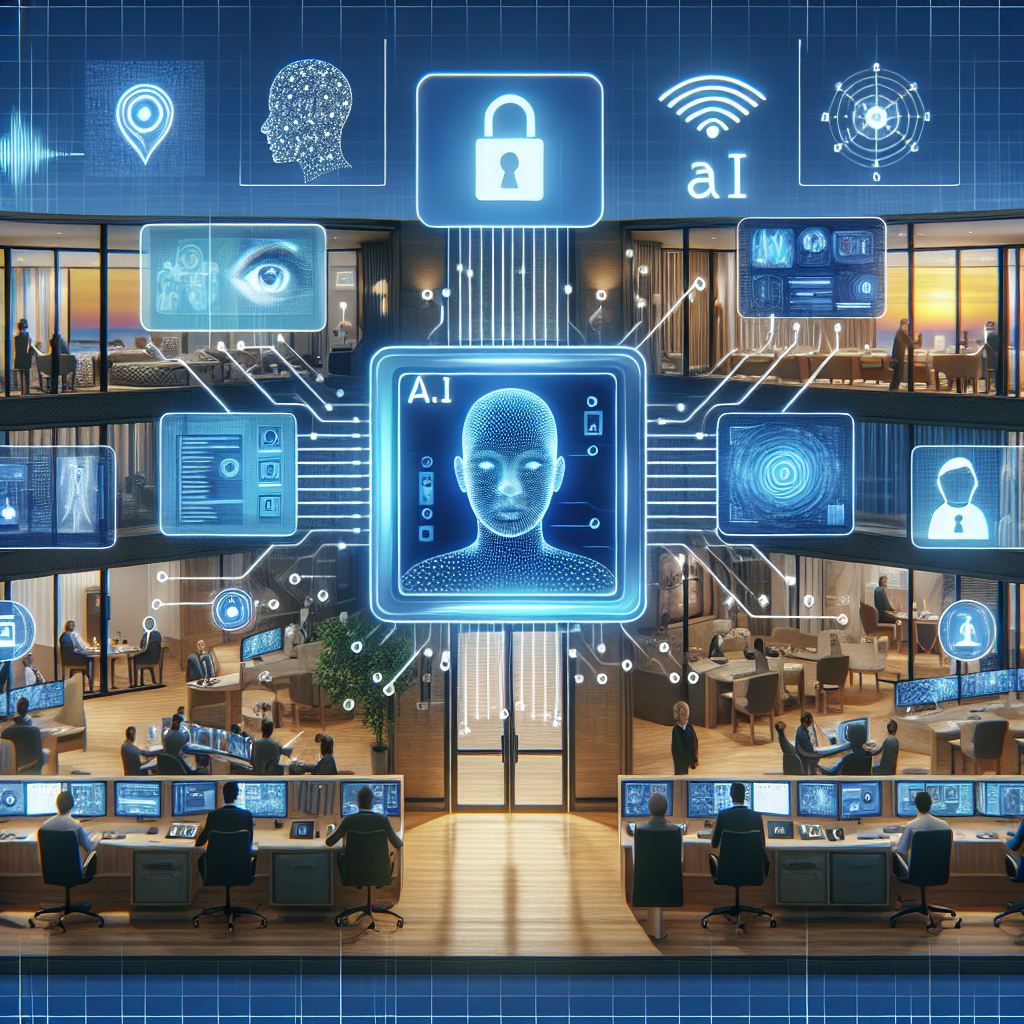Artificial Intelligence (AI) technology has become increasingly prevalent in various industries, including the hospitality sector. In recent years, AI has been leveraged to enhance safety and security measures in hotels and improve emergency response protocols. From facial recognition technology to predictive analytics and chatbots, AI is revolutionizing the way hotels address safety concerns and respond to emergencies.
One of the most significant ways AI technology is enhancing safety and security measures in hotels is through the use of facial recognition technology. This cutting-edge technology allows hotels to identify and track individuals entering and exiting their premises, helping to prevent unauthorized access and potential security breaches. Facial recognition technology can also be used to monitor guest behavior and detect any suspicious activity, enabling hotel staff to intervene before a situation escalates.
In addition to facial recognition technology, AI-powered predictive analytics are being used to analyze data from various sources, such as guest behavior patterns, weather conditions, and social media feeds, to identify potential security threats before they occur. By analyzing this data in real-time, hotels can proactively address security risks and implement appropriate safety measures to ensure the well-being of their guests and staff.
Furthermore, AI technology is being utilized to streamline emergency response procedures in hotels. Chatbots powered by AI can provide real-time assistance to guests during emergencies, such as fires, medical emergencies, or natural disasters. These chatbots can quickly assess the situation, provide relevant information, and guide guests on the appropriate steps to take to ensure their safety.
Moreover, AI-powered surveillance systems can detect and alert hotel staff to potential emergencies, such as a guest falling in their room or a fire breaking out in a common area. By automating the monitoring of surveillance footage, hotels can respond more quickly to emergencies and provide timely assistance to those in need.
Overall, AI technology is revolutionizing safety and security measures in hotels by enhancing threat detection, improving emergency response protocols, and ensuring the well-being of guests and staff. As the hospitality industry continues to adopt AI technologies, hotels can provide a safer and more secure environment for their guests, ultimately enhancing the overall guest experience.
FAQs:
Q: Is AI technology replacing human security personnel in hotels?
A: While AI technology is augmenting security measures in hotels, it is not replacing human security personnel entirely. Human security personnel still play a critical role in monitoring and responding to security threats in hotels, while AI technology complements their efforts by providing additional support through advanced surveillance systems and predictive analytics.
Q: How can hotels ensure the privacy and security of guest data when using AI technology?
A: Hotels must implement robust data protection measures and comply with privacy regulations to ensure the privacy and security of guest data when using AI technology. This includes implementing encryption protocols, restricting access to sensitive data, and regularly auditing data security practices to prevent unauthorized access or data breaches.
Q: What are some potential challenges of implementing AI technology in hotels for safety and security purposes?
A: Some potential challenges of implementing AI technology in hotels for safety and security purposes include the initial cost of investment, technical issues during implementation, and the need for staff training to effectively utilize AI-powered systems. Additionally, hotels must address concerns about data privacy and security when implementing AI technology in their operations.

